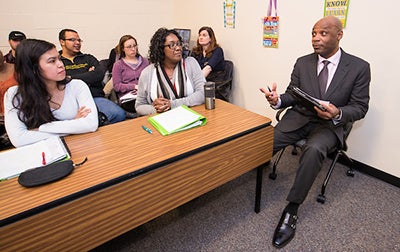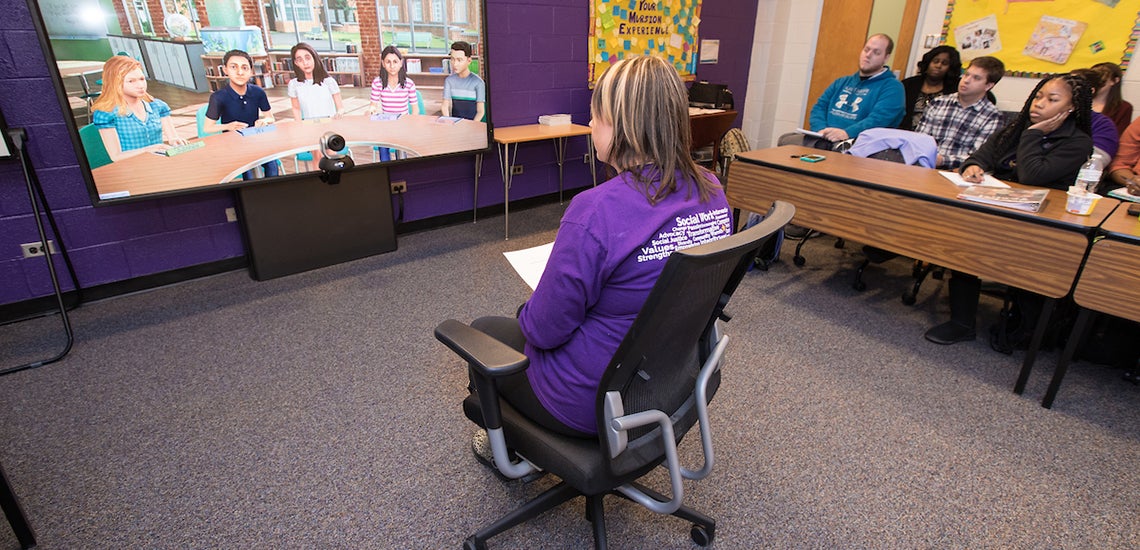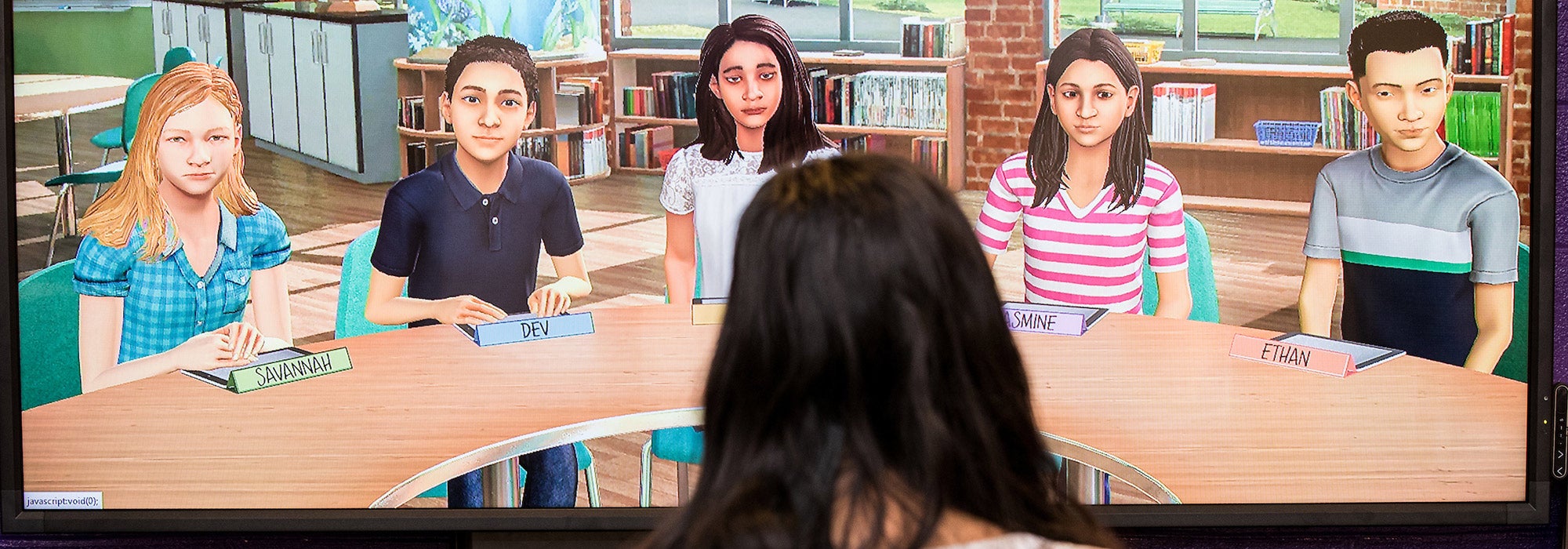LIFE-LIKE THERAPY
Social work graduate students counsel teenagers with addicted parents in simulated environment
East Carolina University social work students are using a virtual environment to talk with life-like teenagers about their parents’ drug use.
The ECU School of Social Work has teamed with the College of Education’s Mursion lab to provide the simulation for graduate students. Organizers believe it’s the first training focused on substance use disorders for MSW students in the UNC system, said Michael Daniels, teaching instructor of social work.
“This is an innovative way of teaching skills before they actually sit down with patients,” Daniels said. “Anxiety is reduced as a result of participating in the lab.”
Although the ECU graduate students are already working in clinical internships, not all work with children or provide group therapy. But the skills are transferable for all clinical settings, Daniels said.
Recently, an eight-minute simulation tested each of the ECU students’ skills as they counseled five adolescents whose parents abused alcohol, drugs or both — a growing concern as the nation faces an opioid crisis.

Social work faculty member Michael Daniels talks with students in the Mursion lab in the College of Education.
The teens shared their feelings and thoughts on the impact of having a drunken father who bet large sums of money on sporting events or a mother addicted to pain medication. “If he’s drinking, he’s angry and if he’s doing drugs, he just sleeps,” a teen named Ethan said. When asked how that made him feel, Ethan responded, “I don’t like it.”
Another young man, Dev, said he felt like he was the grown-up when asked how his mother’s behavior has impacted his life. He cooks, cleans and does the laundry since his mother continues to take pills since her accident.
The experience goes beyond traditional role playing or programmed scripts, Daniels said, by providing students a safe space where they can practice what they have learned in the classroom or on the job with live interactors portraying the teen avatars in the therapy session. The interactors and ECU students see body language and hear the tone of voice, Daniels said. “After about 10 seconds, they are fully immersed and into their role,” he said. “It’s real life for them.”
Janieyah Collins is interning with Uplift Comprehensive Services, which offers individual, home-based therapy. She said practicing her skills in a group setting was helpful. “It was a challenge keeping everyone engaged and trying to prioritize time to get to everyone,” she said.
Talking with avatars didn’t seem too different than interacting with actual human beings.
“It’s the same, and I didn’t think it would be. The kids were going off topic talking about Star Wars. It’s in synch with what happens in a session,” Collins said. “That extra practice outside the field is really beneficial. It helps you get the jitterbugs out before you see a real client.”
Collins, who grew up in the small town of Monroe, said she wants to be a social worker like her mother. “I got to see her impact on lives first hand. I want to be that same person for someone else.”
Jazmin Gonzalez agreed that the simulation is realistic.
“Once you’re sitting in the chair, you forget they’re made-up characters,” Gonzalez said. She is working at South Light Health Care in Raleigh, making the drive to campus twice a week from her home in Clayton.
“Even though I only work with adults, there were quite a few similarities with what I experience at the Mursion lab,” Gonzalez said. “I’ve had a lot of individual practice. Today was literally my first group experience. It’s really great to do that before doing the real thing. It really helped with my interviewing skills.”
Sherri Langley is a mobile crisis worker for Integrated Family Services, where she sees a range of ages from children to older adults. “Our goal is to de-escalate and get them the services that they need,” she said.
She said the simulated scenario helped her to stay focused on the clients. “The interactiveness was really challenging,” Langley said. “They can see your facial expression and body language so you have to be aware of what you’re saying and relaying to the client.”
In addition to instant peer and faculty review, the sessions are videotaped for further analysis and feedback.
The Mursion lab continues to expand and is open to all schools, colleges and departments at ECU, said Christine Wilson, Mursion coordinator.

A social work graduate student participates in Mursion, an interactive learning experience with virtual scenarios that gives students a safe space to practice what they have learned in the classroom with direct feedback from peers and their professor.
